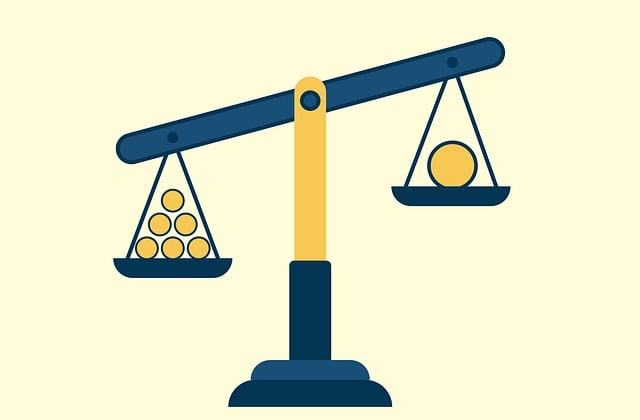Environmental crime trials target offenses against nature, threatening human well-being, with a focus on digital age issues like greenwashing and online eco-unfriendly practices. Consumer Protection Laws for Online Purchases play a crucial role in accountability, challenging businesses' sustainability claims. Strict regulations and advanced tech, including blockchain, aid in tracking illicit activities across global supply chains. International cooperation through agreements and shared practices strengthen environmental justice, with jury trials resolving cross-border crimes impacting global communities.
“Environmental Crime Trials: A Comprehensive Examination of Justice for Our Planet
As our world grapples with escalating environmental challenges, the need for robust legal mechanisms has never been more pressing. This article delves into the intricate landscape of Environmental Crime Trials, exploring key aspects from a legal perspective. We analyze the rise of online greenwashing schemes and their impact on consumer protection laws for online purchases, while highlighting innovative forensic techniques in tracking digital ecological crimes. Additionally, we discuss global cooperation efforts to combat environmental fraud transcending borders.”
- Understanding Environmental Crime Trials: A Legal Perspective
- Online Purchases & Pollution: Unveiling Greenwashing Schemes
- Consumer Protection: Holding Companies Accountable for Eco-Offenses
- Evidence & Forensics: Tracking Down Digital Ecological Crimes
- Global Cooperation: Addressing Environmental Fraud Across Borders
Understanding Environmental Crime Trials: A Legal Perspective

Environmental crime trials present a unique legal landscape, where the focus shifts from traditional criminal offenses to those that threaten the natural world and, by extension, human well-being. These cases often involve complex issues, including pollution, habitat destruction, and illegal trade in endangered species or toxic substances. From a legal perspective, understanding these trials requires a deep dive into specific environmental regulations and their corresponding enforcement mechanisms.
In many jurisdictions, consumer protection laws for online purchases have been instrumental in combating environmental crimes. These laws empower authorities to hold individuals and businesses accountable for eco-unfriendly practices, such as the illegal sale of protected species or hazardous materials. Winning challenging defense verdicts for his clients in these cases demands a robust general criminal defense strategy that navigates the intricate web of environmental regulations, ensuring fairness and due process while upholding the rule of law.
Online Purchases & Pollution: Unveiling Greenwashing Schemes

In the digital age, as online purchases become the norm, environmental crime trials are increasingly focusing on greenwashing schemes hidden within e-commerce platforms. Consumers, often unaware, may contribute to pollution through seemingly harmless online buys. These transactions can mask white-collar and economic crimes, leaving a trail of environmental degradation across the country. The challenge lies in navigating the intricate web of online marketplaces and ensuring transparency under Consumer Protection Laws for Online Purchases.
Prosecutors are now scrutinizing how companies market eco-friendly products, particularly those making exaggerated or misleading claims about their sustainability. This shift is crucial as it holds businesses accountable for their environmental impact and prevents a complete dismissal of all charges related to pollution. By exposing these greenwashing schemes, environmental crime trials contribute to fostering integrity in the digital economy, ensuring that both consumers and the planet are protected from harmful practices.
Consumer Protection: Holding Companies Accountable for Eco-Offenses

In recent years, environmental crimes have gained significant attention, leading to stricter regulations and increased scrutiny on corporate accountability. Consumer protection laws play a pivotal role in this context, especially when it comes to online purchases. As more transactions shift online, so does the potential for eco-offenses, such as false advertising or selling harmful products. Companies must be held accountable for their actions under consumer protection laws, ensuring that their marketing strategies and product claims align with environmental standards. This is crucial in safeguarding both consumers and the environment, especially since online shoppers may not have access to detailed product information compared to traditional retail settings.
With an unprecedented track record of winning challenging defense verdicts across the country, legal teams are now focusing on these consumer protection aspects. By leveraging digital evidence and expert testimony, they can demonstrate a company’s negligence or intentional misleadership in environmental matters related to online sales. This shift in legal strategy ensures that corporations are responsible for their eco-offenses, fostering a culture of transparency and sustainability in the digital marketplace.
Evidence & Forensics: Tracking Down Digital Ecological Crimes

In the digital age, environmental crimes are no longer limited to deforestation or water pollution; they now encompass a range of online activities that can cause significant ecological damage. Evidence and forensics play a pivotal role in tracking down these digital ecological crimes, which often involve complex chains of supply and intricate financial transactions. Advanced technologies, such as blockchain and data analytics, offer powerful tools to uncover illicit activities, ensuring accountability under Consumer Protection Laws for Online Purchases. By tracing digital footprints, investigators can navigate the labyrinthine networks of e-commerce platforms, identifying corporate and individual clients involved in illegal practices, thereby avoiding indictment.
Forensics experts delve into digital records, examining metadata and analyzing patterns to reconstruct the timeline of events. This meticulous process helps establish beyond a reasonable doubt, a criterion essential for jury trials. By integrating traditional forensic methods with cutting-edge digital tools, law enforcement agencies can present compelling cases, ultimately fostering a culture of environmental responsibility in the online realm.
Global Cooperation: Addressing Environmental Fraud Across Borders

In today’s globalized world, environmental crime is not confined to any single nation or region, making international cooperation crucial for effective enforcement. As white-collar and economic crimes span borders, so do their impacts—pollution, deforestation, and other environmental transgressions know no national limits. This necessitates harmonized approaches and agreements between nations to address these transboundary issues. Collaboration among legal systems enables the consistent application of consumer protection laws for online purchases, ensuring that businesses operating across jurisdictions adhere to environmental standards.
Through international treaties and agreements, countries establish frameworks to prosecute and deter environmental fraud. These initiatives facilitate the sharing of evidence, expertise, and best practices among general criminal defense attorneys and law enforcement agencies. Jury trials play a pivotal role in this cooperation by providing a platform for cross-border cases to be heard and decided, upholding justice and accountability for environmental crimes that resonate across borders.
Environmental crime trials are a pivotal step in combating the growing threat of ecological fraud. By understanding the legal framework, unraveling greenwashing schemes, and leveraging evidence from digital forensics, these proceedings ensure consumer protection laws for online purchases are upheld. Global cooperation is essential to address transboundary environmental offenses, fostering a sustainable future where justice and conservation go hand in hand.






